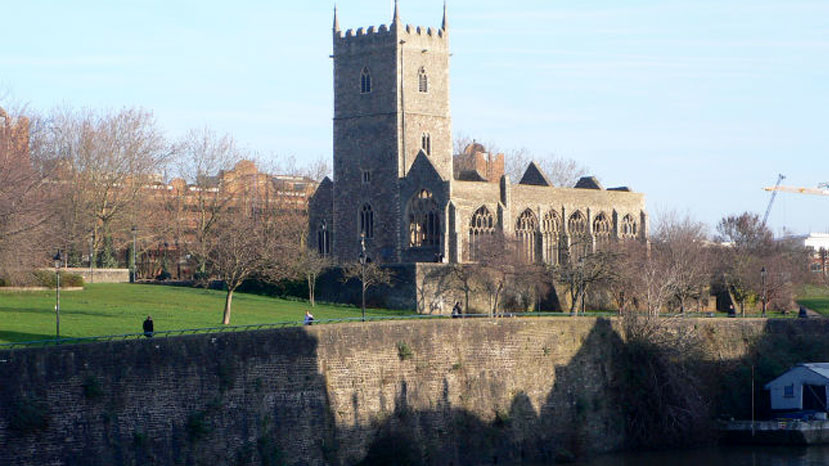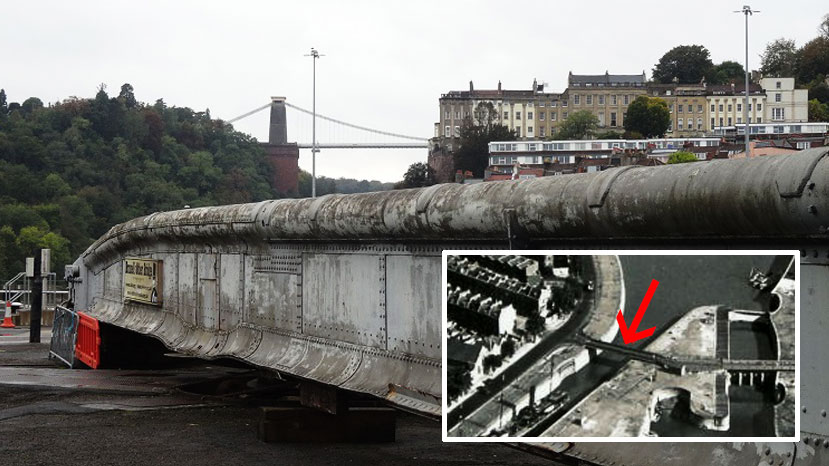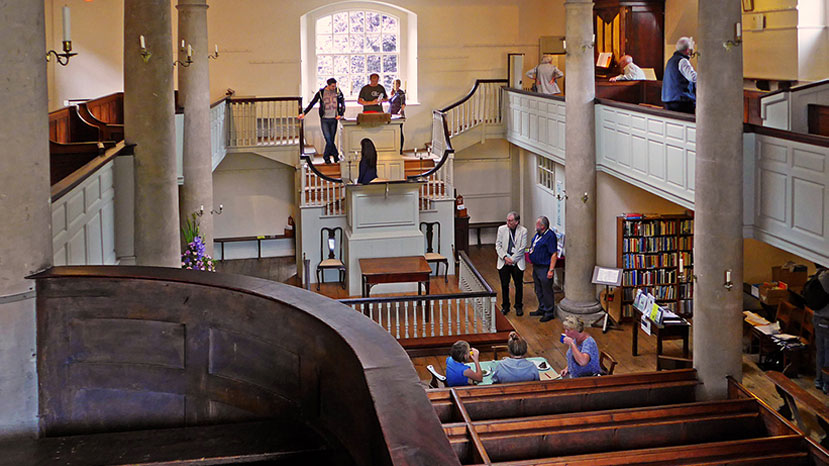Things you never knew about Bristol
- Published in UK
 Bristol has a secret history that’s rich with weird and largely unknown facts. Below, we list ten of the best.
Bristol has a secret history that’s rich with weird and largely unknown facts. Below, we list ten of the best.
From a monkey skeleton, hidden treasure and a pub on wheels to disobedient gardeners, blankets and a Methodist preacher. Bristol has a secret history that’s rich with weird and largely unknown facts. Below, we list ten of the best.
1. The excavation of the Sally Port in Castle Park produced one surprising result

When archaeologists excavated the Sally Port (an old term for a gateway, in case you were wondering) in Castle Park in 1970, the most important discovery was the skeleton of a monkey.
2. The Medieval Causeway leading to the Watching Brief has been reconstructed

As the name suggests, Castle Park was once the site of Bristol Castle. The Watching Brief was the area used by castle guards to oversee imports/exports, in this case from the port. In 1971, council gardeners were asked to clear an area of the park ready for an archaeological dig. In doing so, they moved some cobbled stones to a rockery in St Agnes Park. The supervisor quickly realised his mistake, and recreated the Watching Brief’s medieval causeway that same day. No one ever knew – until now.
3. The Brass Cannons from Brandon Hill are buried under Jacob’s Well

During the Second World War, brass was collected to melt down into weapons. However, the supervisor of Brandon Hill was having none of it so he hid the brass cannons surrounding Cabot Tower in a pit under Jacob’s Well, where they remain to this day.
4. The Llandoger Trow pub is on Wheels

Forget Defoe and Stevenson – the Llandoger Trow pub in the city centre has a much more interesting story to tell. It was built on wheels to accommodate the then-floating harbour.
5. Brunel built Two Bridges in Bristol

Everyone knows Isambard Kingdom Brunel’s famous Suspension Bridge, but what about its lesser cousin? The Swivel Bridge (1849) pales in stature, but is nonetheless a Grade II-listed spectacle to behold off the Cumberland Basin.
6. A Bristolian invented Blankets

Legend has it that Bristolian wool merchant Edward Blanket invented the humble blanket. The trader is buried alongside his wife in St Stephen’s Church on Colston Avenue.
7. The first Methodist Preacher was a Bristolian

When John Wesley preached a sermon from Hanham Mount to local miners in 1739, he created a whole new religion: Methodism. The New Room, the first Methodist chapel, was built on The Horsefair that same year.
8. Ribena was invented in Long Ashton

Scientist Vernon Charley created Ribena during the Second World War as an important alternative vitamin source. Nowadays the brand is owned by Japanese company Suntory. The name comes from the Latin word for blackcurrants 'Ribes Nigrum'.
9. Chocolate as you know it has been invented in Bristol

The first bar of chocolate was created in Bristol by Joseph Fry, who worked out how to make it into solid bars. Before that it was only available to drink.
10. The 25% of the world’s Natural History films are made in Bristol

Thanks to the BBC’s extensive archives and natural history department, Bristol can claim rights to a quarter of the world’s natural history shots.
Source:Timeout


